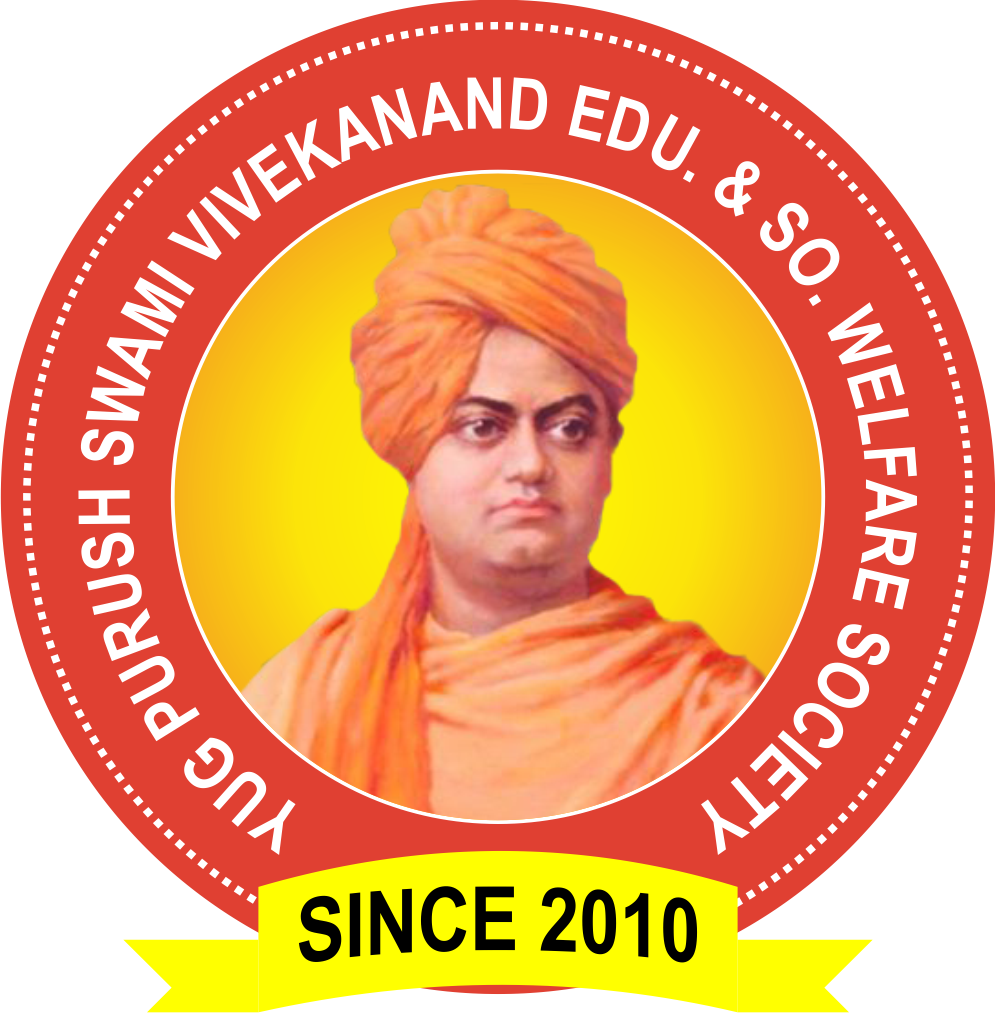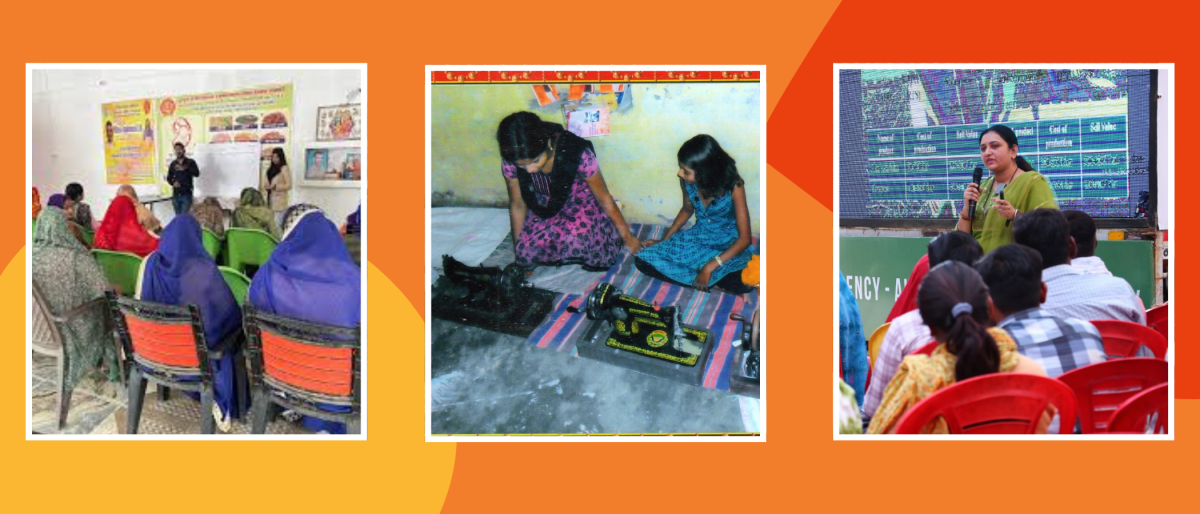The Skill Training Program organized by the Yug Purush Swami Vivekananda Educational and Social Welfare Society would be a vital initiative aimed at empowering individuals through practical knowledge and vocational skills. Swami Vivekananda, in his teachings, always emphasized the importance of self-reliance, empowerment, and holistic development, and a skill training program would align perfectly with these values.
Vivekananda believed that the key to societal progress was not just academic education but also practical, hands-on learning that equips individuals with the skills needed to thrive in life. For the Yug Purush Society, skill training programs would be centered around empowering people, especially the youth, women, and marginalized communities, to be self-sufficient, contribute meaningfully to society, and lead fulfilling lives.
Key Objectives of the Skill Training Program:
- Empowerment through Self-reliance:
- Swami Vivekananda believed that true education must lead to the empowerment of individuals. Skill training would be aimed at making people self-reliant, giving them the tools they need to improve their own lives and contribute positively to their communities.
- By offering vocational training in various fields, the society would enable individuals to become financially independent and improve their social and economic status.
2. Developing Skills for Modern and Traditional Needs:
- While Vivekananda emphasized traditional knowledge and values, he also understood the importance of adapting to the changing times. Therefore, the society’s skill programs would balance both modern skills (aligned with technological advancements) and traditional skills (to preserve heritage and culture).
- Skill training would encompass both high-demand modern fields (like digital literacy, IT, business skills) and traditional crafts (like handloom weaving, pottery, carpentry, and traditional healing).
Key Components of the Skill Training Program
- Vocational Skill Development:
- The Swami Vivekananda Educational and Social Welfare Society would provide skill training in various vocational sectors, including:
- Information Technology (IT): Training in computer literacy, coding, web development, digital marketing, and graphic designing to equip individuals with modern technical skills.
- Healthcare: Basic healthcare training, including nursing, first aid, and home healthcare, empowering individuals, especially women, to take on caregiving roles.
- Entrepreneurship: Training on how to start and manage small businesses, including accounting, marketing, and customer service skills. This would help individuals become entrepreneurs and generate employment opportunities for others.
- Trade Skills: Courses on plumbing, electricity, carpentry, welding, and automobile repair would offer hands-on technical expertise, ensuring students are ready to enter the workforce immediately after training.
2. Women Empowerment through Skill Development:
- Swami Vivekananda was a strong advocate for women’s education and empowerment. The society would offer skill training programs specifically for women, which could include:
- Sewing and tailoring: Helping women learn how to create clothes or start tailoring businesses.
- Food processing and catering: Offering culinary skills training to enable women to start food businesses or cater to local markets.
- Handicrafts: Teaching traditional arts and crafts (such as pottery, embroidery, and weaving) that women can turn into entrepreneurial ventures or sell at local markets.
3. Youth Skill Development:
- Youth empowerment through skill development is essential for building a vibrant society. The society would focus on youth training programs that include:
- Soft Skills Development: Including communication skills, problem-solving, leadership, time management, and teamwork. These are vital for personal and professional growth.
- Job Readiness Programs: Training the youth to understand workplace expectations, including resume building, interview skills, and professional behavior.
- Apprenticeships and internships: Offering opportunities for the youth to get hands-on experience in various sectors, increasing their chances of getting hired.
- Environmental Skills: Training youth in sustainable practices such as organic farming, water conservation, and renewable energy, fostering an environmentally conscious generation.
4. Digital Literacy and Technological Skills:
- The society would provide digital literacy programs to train individuals in the use of basic technologies like computers, smartphones, and internet tools. These programs would cover:
- Basic computer skills (Microsoft Office, email, etc.)
- Internet safety and digital communication.
- Social media marketing and e-commerce: Training individuals to leverage the internet for business growth and social outreach.
- As part of the program, digital training could be linked to online education platforms, helping individuals continue their learning journey in specialized fields.
5. Collaborations with Industry Experts:
- The society could collaborate with industry professionals, entrepreneurs, and local businesses to provide real-world training in various fields. By bringing in experts for guest lectures, workshops, and live projects, the skill programs would offer hands-on training and exposure to the latest industry trends.
- Internships and apprenticeships could be facilitated in collaboration with local industries, providing students with valuable job experience.
6. Self-Employment and Entrepreneurship Training:
- Swami Vivekananda believed in the self-reliance of individuals. The society would place a strong emphasis on entrepreneurship through skill training, especially for those in rural and marginalized areas.
- The programs would cover essential skills for running a business, such as financial management, marketing strategies, customer relations, and business law.
- Microloans or seed funding could be provided to individuals who wish to start their own businesses, supporting their efforts toward self-sustainability.
7. Vocational Training Centers and Infrastructure:
- The society would establish vocational training centers in both urban and rural areas, equipped with the necessary infrastructure to teach a wide range of skills. These centers would offer theoretical knowledge as well as practical, hands-on training in subjects like mechanical work, tailoring, electronics, and more.
- The society could also set up mobile training units that travel to rural or remote areas, bringing skill development to people who have limited access to training facilities.
8. Life Skills Training:
- Along with technical skills, the society would focus on life skills such as emotional intelligence, conflict resolution, personal finance management, and stress management. These skills are vital for mental well-being and professional success, ensuring that individuals are prepared for the challenges of modern life.
9. Sustainability and Green Skills:
- Training in eco-friendly technologies and sustainable business practices could be a major part of the society’s skill development programs. Areas of focus could include:
- Solar energy and other renewable energy sources.
- Organic farming and permaculture.
- Organic farming and permaculture.
10. Tracking Progress and Career Development:
- After completion of the training, the society would ensure job placement assistance, internships, and career guidance to help individuals transition from training to employment or entrepreneurship.
- Mentorship programs could be offered to guide individuals as they enter the workforce or start their own businesses.
Our programme for above mission has been planned by adopting following strategies .
- Identification of beneficiary who are interested/having aptitude for getting training planned by us and being conducted at our Institute for skill development.
- Identify areas which may be suitable for the locality is and based on the backward – forward linkage,i.e raw material is locally available and finished item may be marketed locally or through out side agencies in different part of country
- Providing training at our institute by skilled and Govt approved training institute/ trainer who may generate skill in trainee in the areas of choice and provide certificate.
- Arrange fund for trained persons through forming Self Help Group. Arrange raw material and make arrangement for sale of their finished product.
- We have already started skill development programme for making Soap base on locally available Aloe, Nim, Tulsi, high protein rich supplement from herbs locally available, e.t.c.
Interested individual may get themselves registered on following google form as under :

